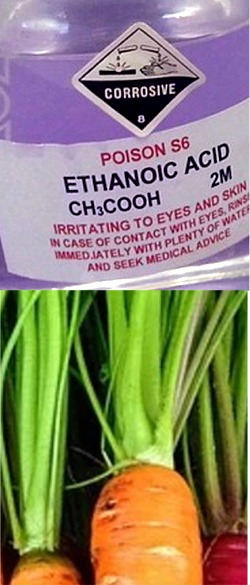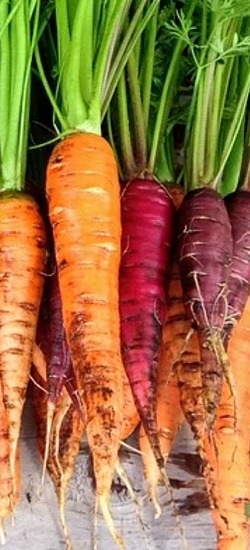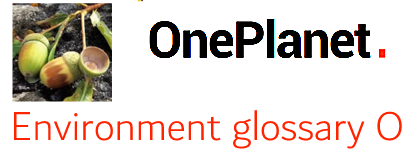OnePlanet is for people who speak English as a second or third language
A B C D E F G H I J K L M N O P Q R S T U V W X Y Z CLICK for list of all the words
O is for: |
: |
organicOrganic is an interesting word, because it's about two apparently different things - carbon and life. Today we often use it to talk about the chemical element carbon (C) but originally organic meant "about living organisms". Carbon and life are connected. All the life we know about is based on carbon. Trees and humans are both 50% carbon (a living tree or a living human is 60% water, but if you take away the water, what's left is 50% carbon). When we talk about the "organic material" in soil, we mean everything in the soil which is alive or which was once alive. Worms, dead leaves, etc. The organic material in the soil is everything which is not water or pieces of rock. When we talk about organic farming, we mean farming that uses natural fertilisers and does not use industrial fertilisers or pesticides. So why is chemistry based on carbon called "organic chemistry" when it relates to industrial products including pesticides and explosives? When organic chemistry began in the 19th century it worked only with substances like urea that came directly from animals, plants and other living organisms. |
 |
organic farmingPlease first see organic. "Organic farming" uses natural fertilisers (compost, manure from animals and 'green manure' from leguminous plants) and does not use chemical fertilisers and chemical pesticides. OK, I know, everything in the universe is either energy (physics) or matter (chemistry). When we say "chemical fertiliser" we mean fertiliser that is made by industrial processes, not by the natural processes of life, death and decay. And there are big practical differences between them. The fertiliser industry uses 2% of the world's energy every year just to make ammonia. And that's without the nitrates, phosphates, mining, factories, laboratories, plastic fertiliser bags, lorries, ships and fuel that move industrial fertiliser around the planet, not to mention advertising, invoices and salesmen. There is also a difference in quality - have you tasted a real tomato, compared to a hydroponic tomato that is grown in water and industrial fertiliser? There is also a difference in sustainability - industrial fertilisers and pesticides are bad for the bacteria, fungi and invertebrates that live in healthy soil, and they're bad for plankton, fish, birds, animals and us. But they do make it possible to produce enough food for 7 billion humans. It's because we talk about "organic farming" that we also talk about organic tomatoes, organic carrots and organic cotton T-shirts. In languages other than English, people prefer to call these things "bio" or "biological". |
 |
...New words every week; CLICK HERE for a full list Under construction: Lorem ipsum dolor sit amet, consectetuer adipiscing elit. Aenean commodo ligula eget dolor. Aenean massa. Cum sociis natoque penatibus et magnis dis parturient montes, nascetur ridiculus mus. Donec quam felis, ultricies nec, pellentesque eu, pretium quis, sem. |
 |
* |
* |
A B C D E F G H I J K L M N O P Q R S T U V W X Y Z CLICK for list of all the words
